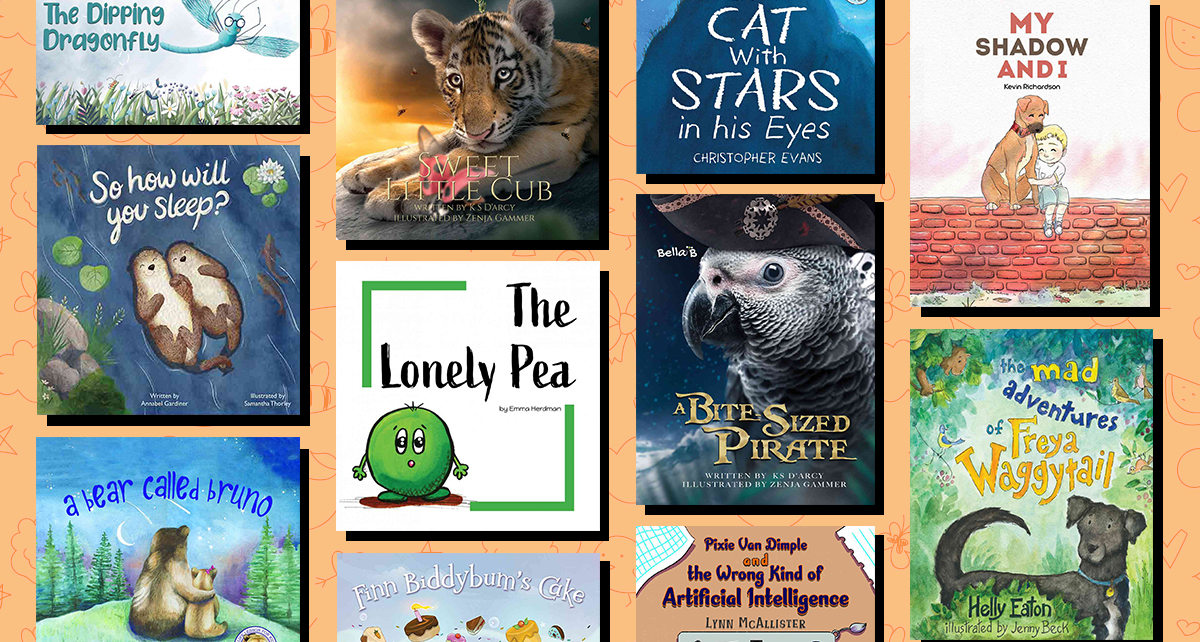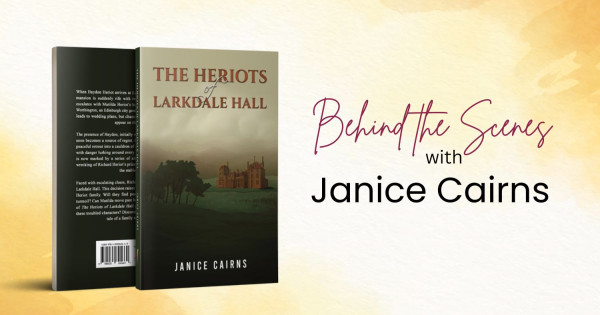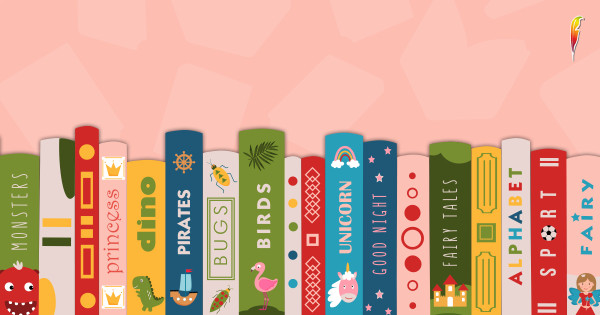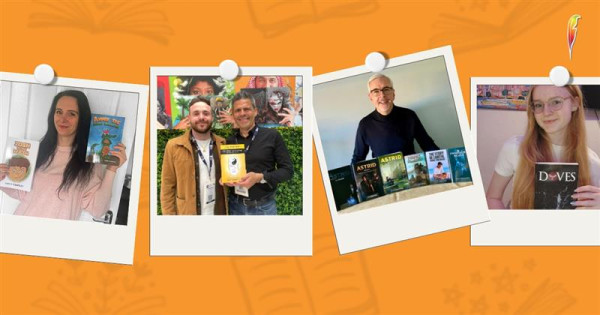
Perfect Books to Read to Children This National Storytelling Week
National Storytelling Week this year will take place from January 30th to February 6th. The week celebrates reading and takes its roots from World Storytelling Day. The Day was first celebrated in Sweden in 1991-1992 and quickly spread to other countries as its popularity grew.
National Storytelling Week is celebrated in the United Kingdom by schools and parents across the country. Children’s books are read and celebrated, teaching children the importance of reading.
The history of National Storytelling week is one detrimental to the fabric of our society and our reading habits.
History of National Storytelling Week:
Storytelling has existed since the days of cavemen with their inscriptions tattooed on their cave walls. As cultures developed the ancient cultures- Greeks, Egyptians and Sumerians gave us oral stories.
Homer is a legendary author to whom conducted the two epic poems that are key foundations to the work of ancient Greek literature- Illiad and the Odyssey. He is regarded as one of the first written Orators, his stories still passed down generations later.
Storytelling exists in many cultures. The Jewish Passover Seder includes the storytelling ritual known as seder which tells the story of the exodus of the Jewish people in Egypt. Choctaw a Native American tribe tells of history and moral teachings of the native Choctaw people and employs animal characters as a form of education to their children. And finally the seanchaí were the traditional Irish keepers of a story. The spoke of old myths, local news and happenings, focalising on the tales of Kings and Heroes.
Overtime our storytelling capabilities have advanced greatly. Enlisting the incorporation of photography, video recordings and television. Nowadays exploration of storytelling can be done in any kind that they want.
Famous Storytellers:
The ways in which storytelling has shaped our lives is unmeasurable. Human expression comes in all forms, but the ability to make it entertaining for mass audiences and making it a basis for memories for all is a skill.
Stephen King a literary legend who wrote classics such as the shining, Misery, IT and Carrie has effectively put fear into his readers and is considered the King of darkness. Walt Disney although a storyteller through the medium of film has created everlasting nostalgic classics which are enjoyed globally. Shakespeare the iconic playwright has completely shifted the English language forever and created some of the most iconic characters. But effective storytelling does not just have to centre around creating a lasting impression, but not being afraid to challenge and question the status-quo. Harper Lee wrote, “To Kill a Mockingbird” is written during a time where racial tensions in the US were high. Lee questions Southern life and the racial injustice in which it practised. To be a white woman and criticise the way in which you black counterparts were treated was largely unheard of during this period. Lee was risking not only her reputation, but her life. If it wasn’t for her bravery to tell a story during the Jim Crow Laws and harsh segregation we would of never had the iconic To Kill a Mockingbird.
Fairy Tales and Children’s Storytelling
Fairy tales originated shortly after William Shakespeare’s plays in the 17th century. They originate from France and were passed down from generation to generation. The stories were used to teach children moral life lessons and protect them from harm. For example, Hansel and Gretel was told to protect children from wandering off into the woods long before it appeared in children’s books. Shortly after this, storytelling took a different form through printed word when the first newspaper was printed in British colonies of the United States around 1690.
Fairy tales are told across the globe and come in all different forms. But one thing is certain, fairy tales started with oral storytelling before storybooks ever came about.
The definition of a fairy tale is a short story that features fantasy characters like goblins, dwarves, elves, gnomes, mermaids, trolls, and witches. Today, the fairy tales we read in storybooks have evolved from centuries-old stories and tales that originated from different variations around the world.
All fairy tales involve the following elements:
- An unreal world with no definite locality
- Humble heroes kill villains
- Kingdoms are conquered
- Heroes marry Princesses
Charles Perrault is known as the father of the fairy tale. The French storyteller is recognized for laying the foundation of the modern fairy tale. Tales like Cinderella, Sleeping Beauty, Puss in Boots, Little Red Riding Hood, and Bluebeard were all created by Perrault.
It was later that the Brothers Grimm, two German brothers, built upon Perrault’s tales and created such classic children’s books like:
- The Frog Prince
- Rapunzel
- Rumpelstiltskin
- Snow White
The Brothers Grimm storytelling inspired many other storytellers to create tales that represented their own culture and national identity. Joseph Jacobs, Hans Christian Andersen and George Macdonald are some of the other storytellers that came after the Brothers Grimm.
The importance of storytelling in Younger Years:
Storytelling is incredibly important to a child. Storytelling and reading books aloud is one of the oldest forms of teaching. A society does not have to be literate to participate in the art of storytelling. It is a cultural and social exchange, one that has been passed down for generations.
Today when we read to our children, we are imparting important skills even if we do not realise it. It is beneficial to help children of all ages to learn important reading skills:
Younger Year Skills:
- Learning sounds and words.
- Promotes brain development and imagination.
- Develops language and emotions.
- Strengthens relationships between children and caregivers.
Older Year Skills:
- Develops cultural and moral understanding.
- Creates creative and critical thinking skills.
- Improves recall and memory skills.
- Encourages focus and concentration skills.
- Improves social skills like listening patiently and waiting before speaking.
However, reading goes beyond just the literary and academic skills its enhances. 2 in 5 (44.6%) children and young people agreed that reading made them feel better. But, the ability to read is a skill which should be honoured and seen as a privilege as 1 in 5 of children the UK can’t read at a satisfactory level by age 11, so reading aloud to them is important as ever.
There you have it! Some great ways to celebrate National Storytelling Week and some great books you can pick up today to read with your children. This is the perfect time to gift some books to your children who will enjoy reading them and sharing them with their friends. With National Storytelling Week just around the corner, do not wait any longer.
Follow us on the platforms below to keep up with our new releases and content.
Facebook | Twitter | Instagram | Tiktok
You can submit your manuscript for review if you are an aspiring writer. Learn more about how to become an author with us here.
We use cookies on this site to enhance your user experience and for marketing purposes.
By clicking any link on this page you are giving your consent for us to set cookies



